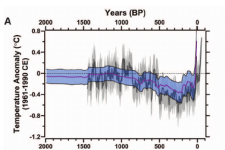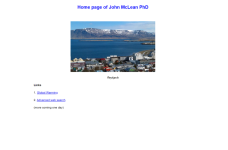- Joined
- Jun 8, 2012
- Messages
- 19,500
- Reaction score
- 5,458
- Location
- Wokingham, England
- Gender
- Undisclosed
- Political Leaning
- Undisclosed
No, I am afraid the change in temperature and the resulting slowing of the ocean currents will be too rapid for ecosystems that evolved over millions of years to adapt to in only a couple of centuries, leading to a decline in algae, the acidification of the oceans, and a critical loss of sea life. That combined with changing weather patterns creating more severe and longer lasting droughts over formerly arable land will result in global famine. Not to mention the increase in severe weather creating a constant barrage of human catastrophe in the third world.
But I suppose on the bright side most of the suffering will be in third world shithole countries, and it won't be for a few generations down the road, right? Why bother planning for that now?
The current modest temperature rise and rate of change are well within the normal natural norms of recent millennia ...... so no need to do as you are told by the shill MSM and panic
mclean.ch/climate/Ice_cores.html




